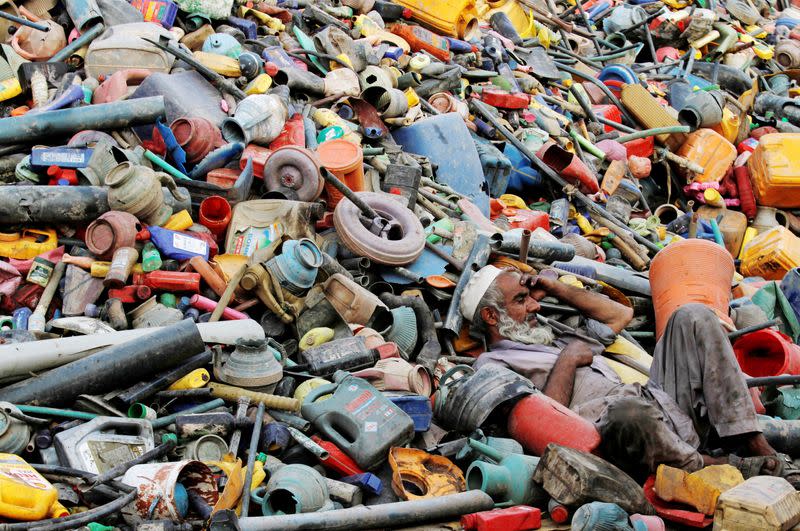World falling behind on environment, health and hunger goals, UN report says

SINGAPORE (Reuters) - The world is way off track on most of the sustainable development targets agreed in 2015, such as tackling poverty and hunger, says a United Nations report which cites funding shortfalls, geopolitical tensions and the COVID-19 pandemic.
The U.N.'s annual Sustainable Development Report ranks the performance of its 193 member states in implementing 17 wide-ranging "sustainable development goals" (SDGs), which also include improving access to education and health care, providing clean energy and protecting biodiversity.
It found that none of the 17 goals were on course to be met by 2030, with most targets showing "limited or a reversal of progress". It urged countries to address chronic funding shortfalls and also revamp the U.N. system itself.
"What this report is showing is that even before the pandemic hit, progress was already too slow," said Guillaume Lafortune, Vice President at the U.N. Sustainable Development Solutions Network (SDSN) and lead author of the report.
"Once the pandemic hit, and other crises - including military conflicts - then it is a story of stagnation."
The report identified the tackling of hunger, the creation of sustainable cities and the protection of biodiversity on land and water as particular areas of weakness. Political goals like press freedom have also seen a "reversal of progress".
It said Finland, Sweden and Denmark ranked at the top of the list of countries, and China has also made faster than average progress, but the world's poorest countries have fallen further behind.
Lafortune said developing countries needed more access to international finance, adding that institutions like credit rating agencies should be encouraged to take a country's long-term environmental and economic wellbeing into consideration, rather than just its short-term liquidity.
The report also assessed countries on their willingness to cooperate globally through U.N. institutions. The United States was ranked in last place.
"A large majority of countries are supportive of collaborating… but there are a number of great powers that do not play by the rules of the game," said Lafortune.
(Reporting by David Stanway; Editing by Michael Perry)


